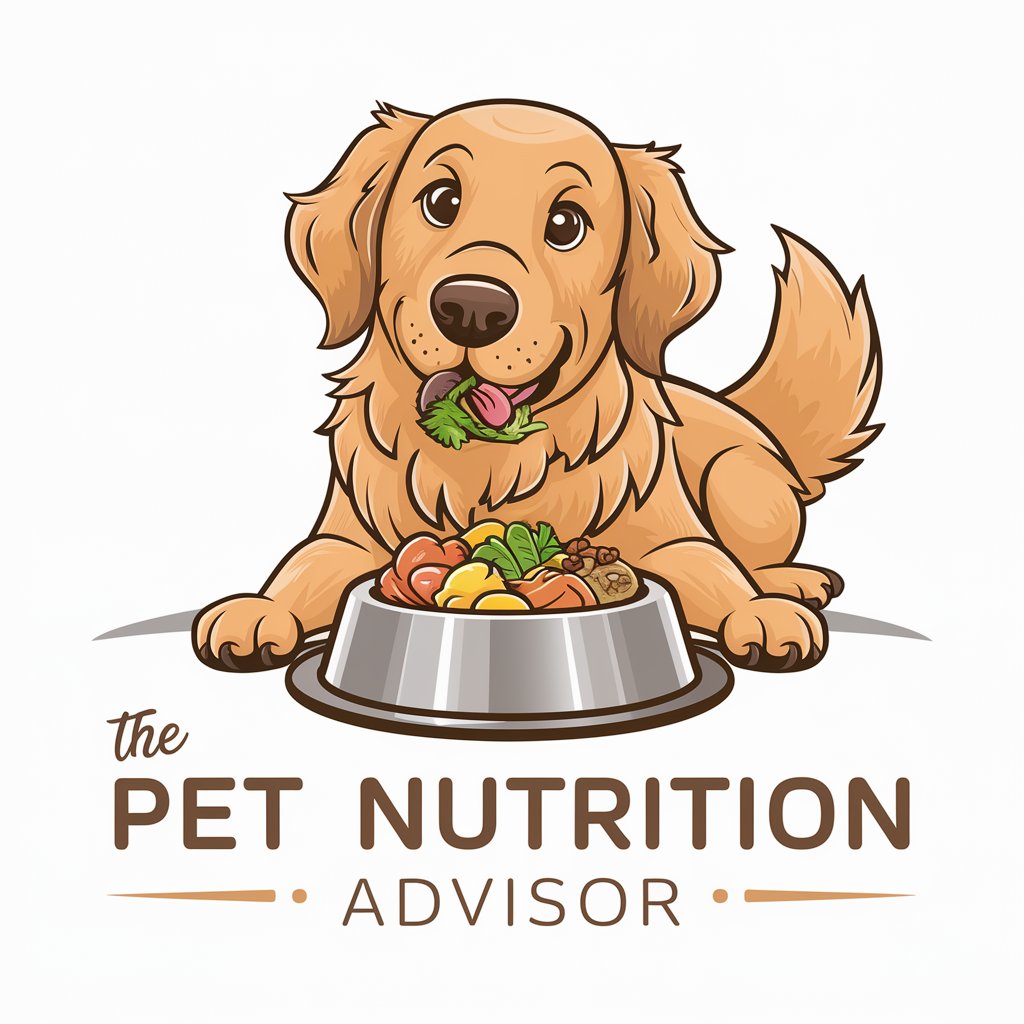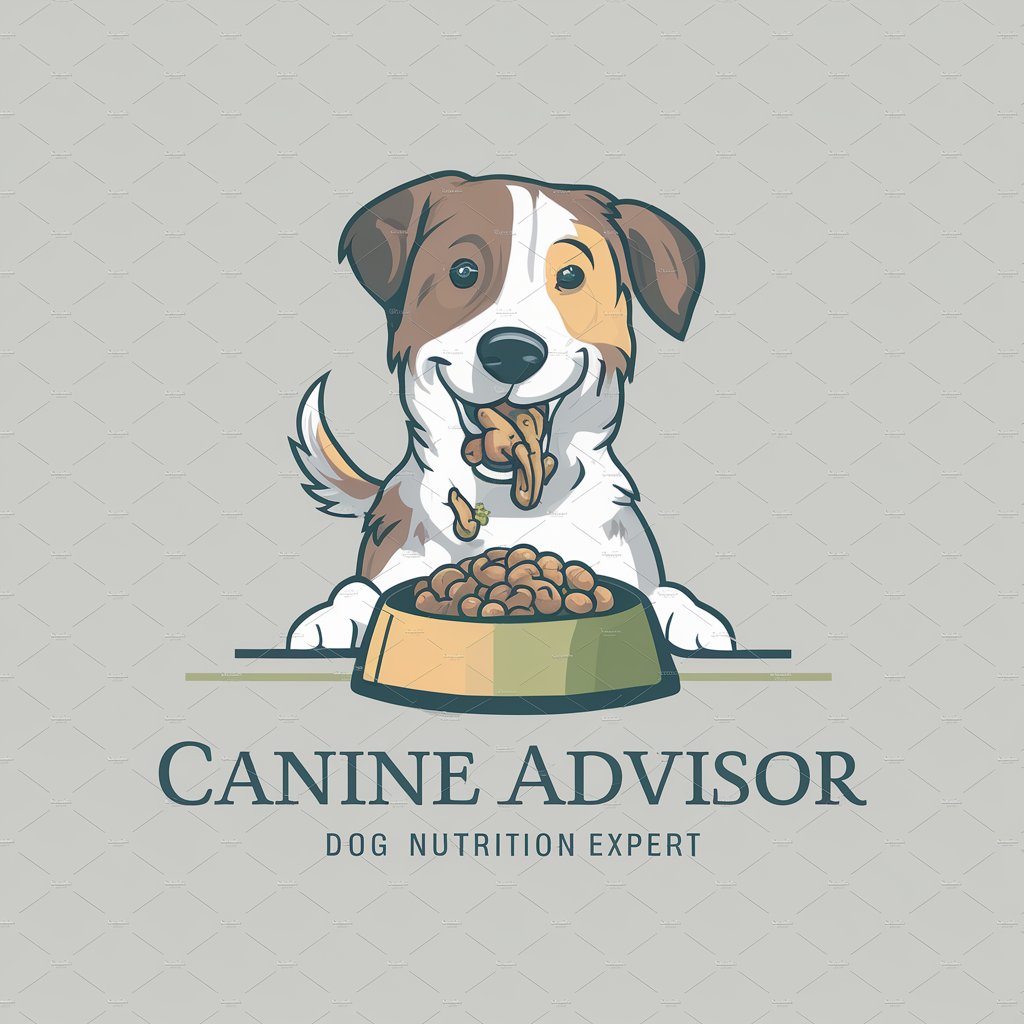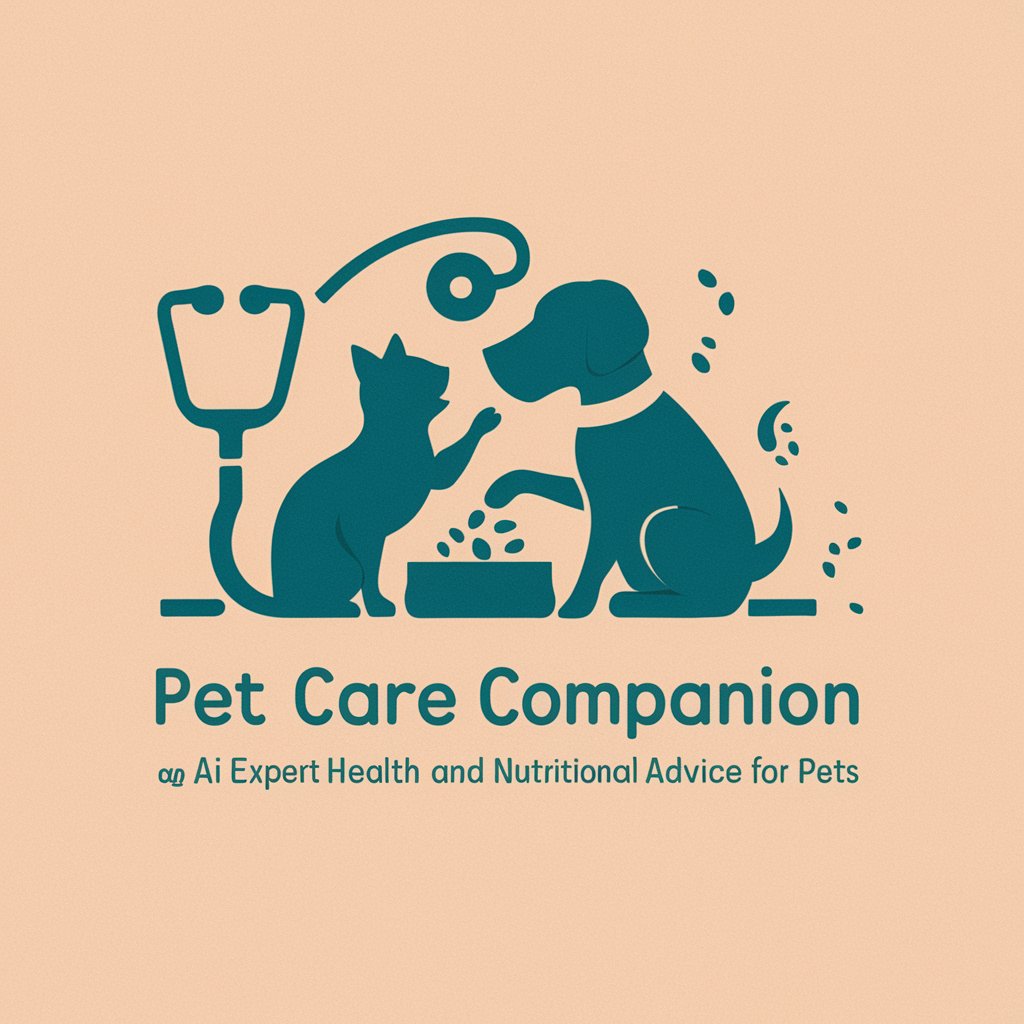
🐾 PetHealth Vet & Nutrition Guide 🥕 - Pet Health and Nutrition Advice
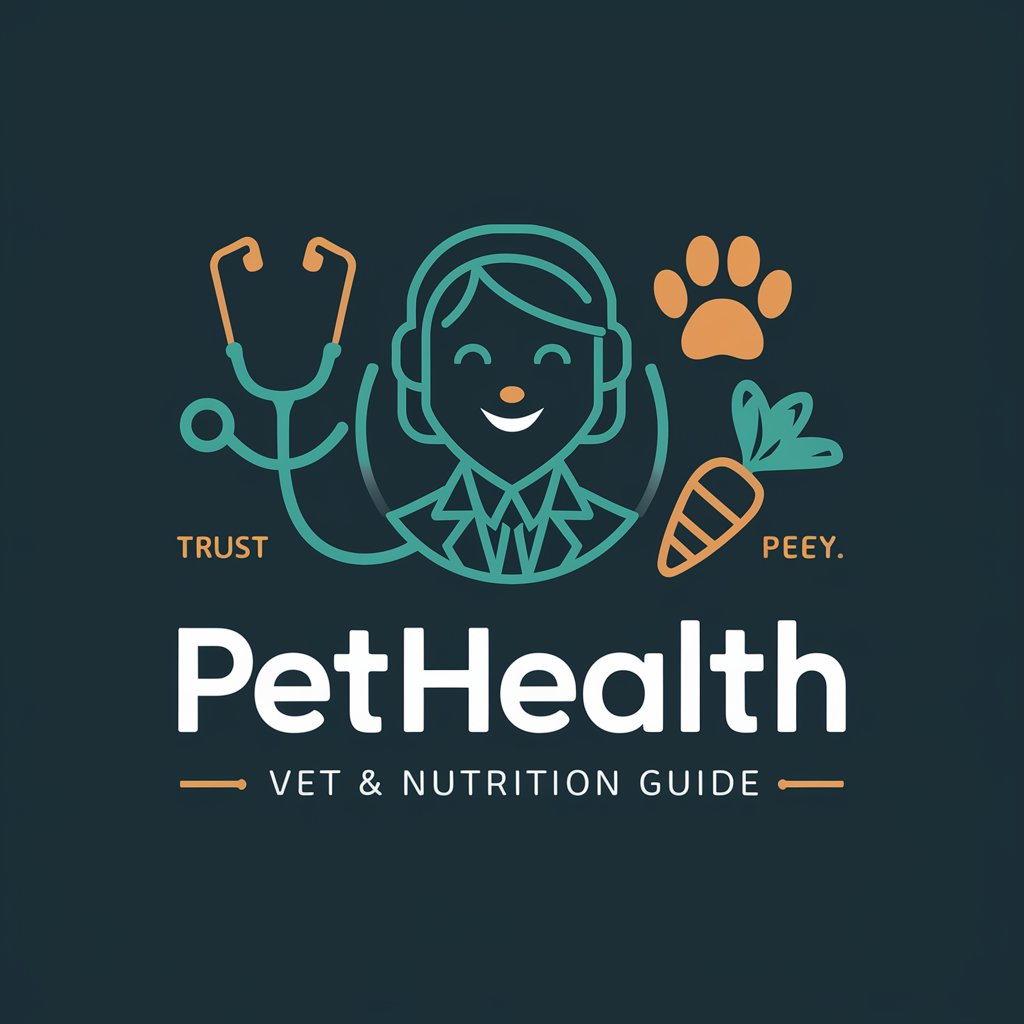
Welcome to PetHealth Vet & Nutrition Guide! How can I assist you and your pet today?
Empowering pet care through AI
Can you suggest a balanced diet plan for my dog with allergies?
What are the common signs of illness in cats?
How often should I take my pet for a veterinary check-up?
What exercises are best for keeping my pet healthy?
Get Embed Code
PetHealth Vet & Nutrition Guide Overview
The PetHealth Vet & Nutrition Guide is a specialized GPT designed to offer comprehensive advice and information on a wide range of pet health and nutrition topics. Its primary purpose is to support pet owners and enthusiasts by providing detailed, reliable information that can assist in making informed decisions about pet care. This tool encompasses an extensive knowledge base, including but not limited to, common illnesses and injuries, preventive care, diet recommendations, and general pet care tips. For instance, a user might seek advice on the best diet for a dog with diabetes or require assistance in understanding the symptoms of feline lower urinary tract disease (FLUTD). The guide is built to simulate a conversation with a veterinary professional, offering insights that are both informative and accessible. Powered by ChatGPT-4o。

Core Functions of PetHealth Vet & Nutrition Guide
Disease Information and Symptom Checker
Example
Identifying symptoms of common conditions like ear infections in dogs, providing detailed symptom lists, and suggesting initial care steps.
Scenario
A user notices their dog shaking its head frequently and discovers through the guide that this behavior could indicate an ear infection, along with recommended steps to take prior to visiting a vet.
Diet and Nutrition Advice
Example
Creating custom meal plans for pets with specific dietary needs, such as obesity or kidney disease.
Scenario
A pet owner learns how to adjust their overweight cat's diet, incorporating high-protein, low-carb food options to promote weight loss, based on guidelines provided by the guide.
Preventive Care Guidelines
Example
Offering vaccination schedules, flea and tick prevention strategies, and dental care tips.
Scenario
A new puppy owner receives a tailored vaccination schedule and advice on establishing a routine for flea prevention, ensuring the puppy's health and well-being.
Behavioral Tips and Training
Example
Providing strategies to address common behavioral issues such as separation anxiety or litter box problems.
Scenario
A user finds effective techniques to help their anxious dog stay calm when left alone, using methods like crate training and positive reinforcement.
General Pet Care Advice
Example
Guidance on routine care, grooming, exercise, and enrichment activities.
Scenario
An owner of a long-haired cat receives tips on regular grooming to prevent matting and advice on the best types of toys to keep their cat engaged.
Target User Groups for PetHealth Vet & Nutrition Guide
Pet Owners
Individuals seeking to enhance their knowledge on pet health, nutrition, and care to ensure their pets live happy, healthy lives. This group benefits from access to a wealth of information on a variety of topics, including dietary management, preventive care, and understanding common health issues.
Veterinary Students
Students in the veterinary field can use the guide as an additional learning tool to supplement their education with practical advice, detailed case scenarios, and a broad overview of pet health issues and nutritional needs.
Pet Care Professionals
Professionals such as pet sitters, groomers, and trainers who require a solid foundation in pet health and nutrition to offer the best care and advice to their clients' pets. The guide provides up-to-date information that can enhance the service they provide.

How to Use PetHealth Vet & Nutrition Guide
Start Your Journey
Begin by visiting yeschat.ai for a complimentary trial, accessible immediately without the necessity for a ChatGPT Plus subscription or any form of login.
Identify Your Need
Determine the specific pet health or nutrition concern you have, whether it's a question about dietary needs, a health issue, or seeking preventive care advice.
Interact with the Guide
Use the chat interface to ask your questions. Be as specific as possible to ensure the guidance you receive is tailored to your pet's unique needs.
Explore Additional Features
Take advantage of the tool's ability to generate meal plans, suggest exercises, and even create custom images for a deeper understanding of health concerns.
Consult a Professional
While this tool provides valuable insights, always confirm any advice received with a licensed veterinary professional, especially for diagnoses or treatment plans.
Try other advanced and practical GPTs
🎉 HobbyistHub: Event Planner Extraordinaire
Streamline Your Events with AI

🍬🔍 CandyCurator: Trend & Taste Finder
Unwrap AI-powered candy trend insights.

🛍️✨ StorefrontStylist GPT 🎨🏬
Revolutionizing Retail Displays with AI

🍹🤖 MixologistAI: Signature Sips Creator
Craft Your Signature Sip with AI

🍽️ FlavorFiesta Daily Specials Wizard 🎉
Craft daily specials with AI flair

💌 EmailCampaigner Pro Max 🚀
Elevate Your Email Campaigns with AI

🔧🚗 MechanicMatch: Auto Parts & Fixes
AI-driven Automotive Assistant

🌸 FloralFinesse Bouquet Assistant 💐
Crafting Blossoms with AI
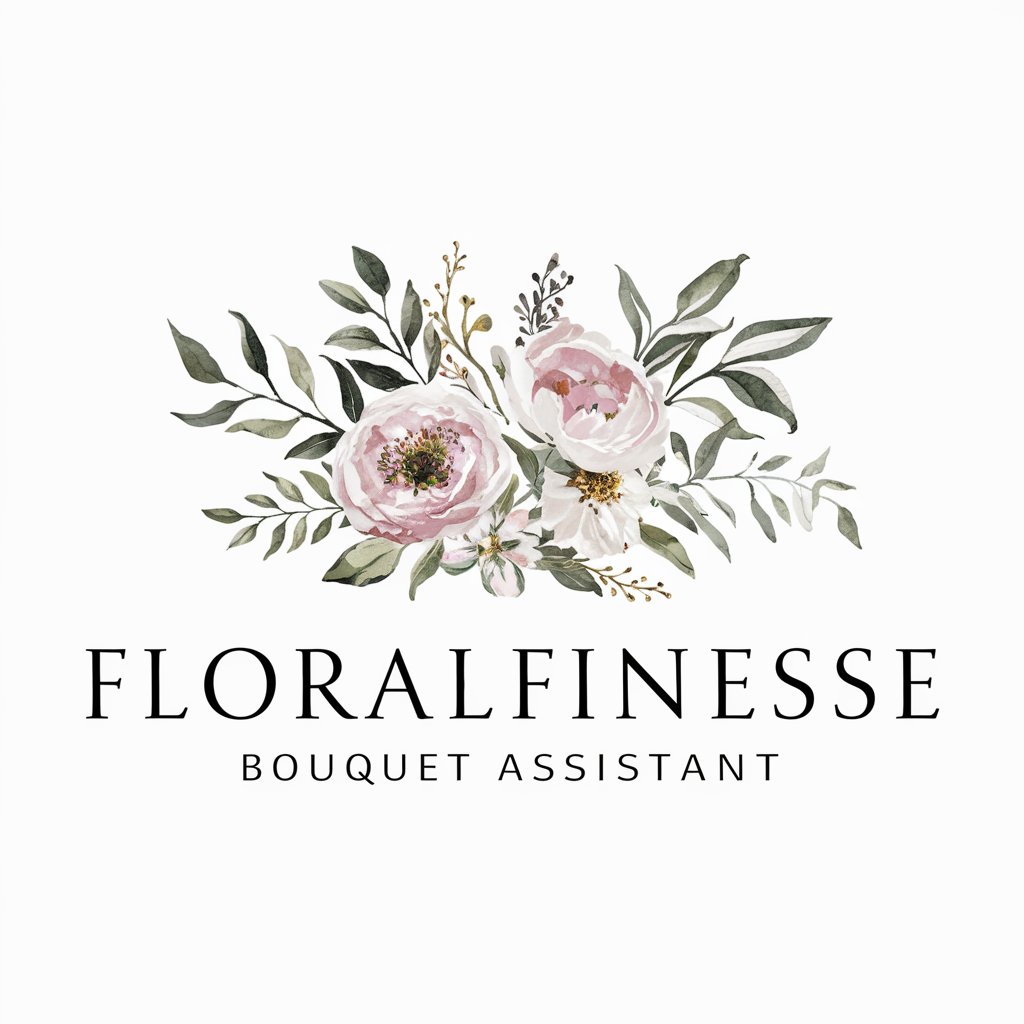
🍽️ Allergen-Safe Menu Architect 🥦
Personalize your plate with AI-driven allergen safety.

🍸 SmartBar Inventory Manager 📊
Optimize your bar's inventory with AI

🏪 QuickServe Checkout Wizard 🧙♂️
Streamlining Sales with AI Power

🍭🍬 SweetTreats Promo Planner 🎁🍫
Sweeten Your Sales with AI-Powered Promotions

Frequently Asked Questions about PetHealth Vet & Nutrition Guide
Can PetHealth create a diet plan for my pet?
Yes, PetHealth Vet & Nutrition Guide can generate customized meal plans based on your pet's specific dietary requirements, age, weight, and health condition.
How can PetHealth help with my pet's exercise routine?
The guide offers suggestions for exercises tailored to your pet's health status, breed, and age, helping maintain optimal physical condition.
Can I get advice on specific health issues?
Absolutely. You can ask about various health concerns, from common illnesses to preventive care tips, and receive detailed information for understanding and action.
Is PetHealth suitable for all types of pets?
While primarily focused on dogs and cats, PetHealth strives to provide valuable information for a broader range of pets. However, specific advice may vary in applicability.
How accurate is the health information provided?
PetHealth bases its advice on a wide array of veterinary sources and knowledge, but it's crucial to consult a vet for accurate diagnosis and treatment.
